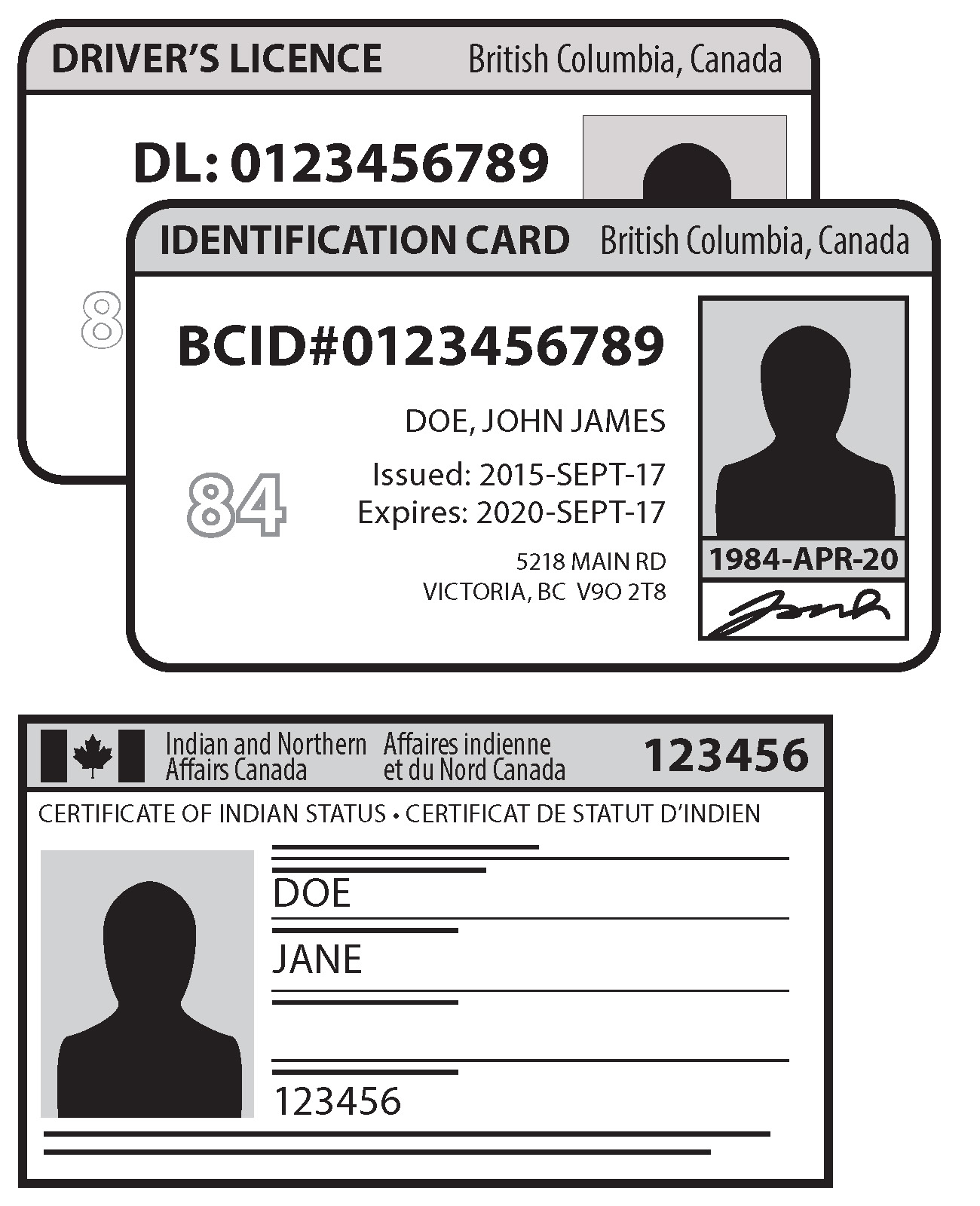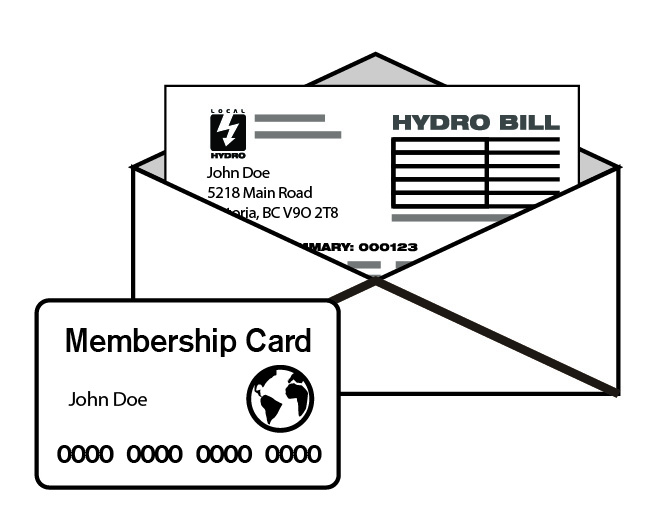Back to main menu
Show one of these pieces of ID:

Show any two pieces of ID or documents that both show your name. At least one must have your current address. Examples include:
Government-issue identity documents
Other government-issue documents
School, college, or university documents
Other documents

Note: Electronic documents (e.g. e-bills) and electronic scans of a paper document are acceptable. Hand-written information on a document is not acceptable, with the following exceptions: Confirmation of Residence forms and statutory declarations completed by hand will be accepted; a Canadian passport containing a voter’s printed name and handwritten address may be accepted as proof of identity, but not as proof of residential address.
Voters who don’t have identification can have their identity vouched for by another person. The voucher must be:
Vouchers must provide acceptable identification. The voter and the voucher must each make a solemn declaration confirming the voter’s identity and residential address.
A voucher who is not the voter’s relative or personal care authority may only vouch for one voter. A relative may vouch for any voters who are members of their family. A personal care authority may vouch for all voters over whom they have written authority.
A voter who has been vouched for may not vouch for another voter in that election.
Power of Attorney does not give an individual the authority to make personal care decisions for another person. To establish that a person has authority under the common law or an enactment to make personal care decisions for a voter as required under the Election Act, the voucher must make a solemn declaration that they have either:
An order of the Supreme Court of British Columbia, naming the voucher and stating that the voucher has been appointed as:
OR
A valid Representation Agreement currently in effect, naming the voucher as a representative or monitor of the applicant under the Representation Agreement Act of British Columbia.